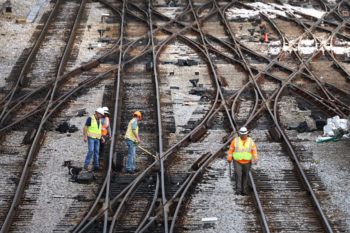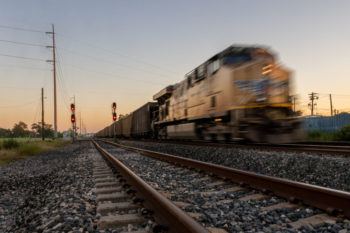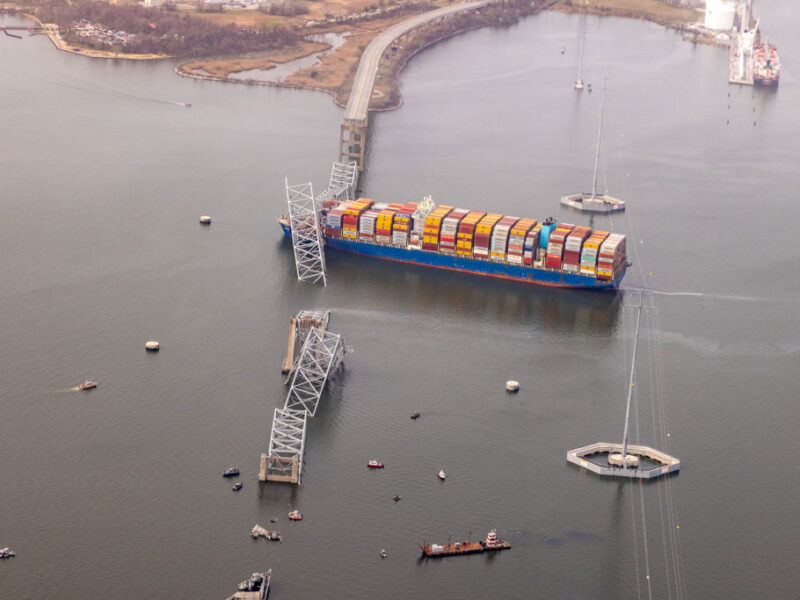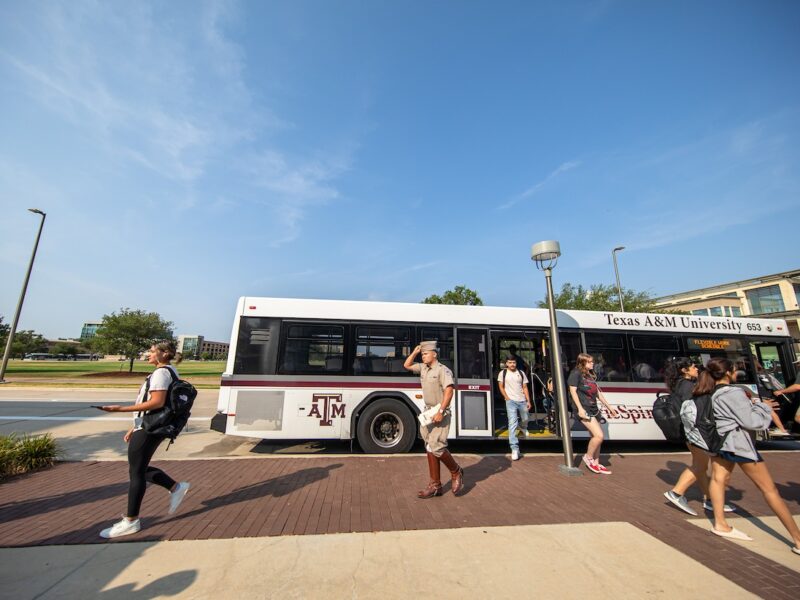Railroad Unions, Companies Reach Tentative Compromise To Avoid Strike

Freight rail companies and unions representing tens of thousands of workers reached a tentative agreement last week preventing what could have been an economically damaging strike.
Although a compromise was reached, . Texas A&M Today spoke with Allan Rutter, head of the Texas A&M Transportation Institute’s Freight and Investment Analysis Division, about the possible implications of a strike should the agreement not be approved.
The average Texan has probably never had to rely on trains for transportation. For these people, how would you explain the role of the rail system in the U.S. economy and supply chain?
Most Texans were born in or moved to Texas long after trains no longer provided extensive intercity passenger rail services. However, Texans have long benefited from the state’s extensive freight rail system. Texas has more rail miles and rail employees than any other state and second-highest number of rail car movements (next to Illinois).
The combination of geography and population make Texas’ rail network critical. With the nation’s second-largest population, Texas is a major market for industrial and retail commercial products that move by rail. Because the state is also a major manufacturing center, Texas generates motor vehicle, chemical manufacturing, and agricultural production rail traffic that moves to the rest of the country. Texas also is a crossroad between consumer products from Asia moving from West Coast ports to eastern states, agricultural products moving between the Midwest to Texas ports for export, and motor vehicle parts between Mexico and Canada.
If the trains were to stop running, how wide-ranging could the consequences be?
The Association of American Railroads, the trade association for larger freight railroads, estimated economic damage of as much as $2 billion per day from a protracted railroad strike.
Some of the effects for Texas would include:
- Ethanol produced from corn in the Midwest is transported by tank car to gasoline refineries along the Gulf Coast (including those in Texas) to be mixed into gasoline that then moves by pipeline throughout the country. A rail strike could cripple gasoline production and/or increase prices at pumps across the country.
- Cattle and poultry raising in Texas depends on feed grain moved by rail. A rail strike would either increase food costs by moving feed by truck or could result in livestock losses.
- Some Texas utilities still use coal-fired power plants which use coal transported by rail from Wyoming. A rail strike could challenge the Texas electrical grid.
- Texas motor vehicle manufacturing in Arlington and San Antonio depends on parts from Canada and Mexico moved by rail, and finished vehicles move out of Texas by rail. A rail strike could result in plant shutdowns and labor furloughs.
A tentative agreement has been reached to avert a national rail strike. If a strike were to happen, how long would it take for the average person to feel the effects? Have there already been pre-strike disruptions?
Precautionary restrictions of hazardous materials to prepare for a possible strike earlier in the week before the strike deadline could have effects on gas production and water supplies (that depend on chlorine moved by rail cars). A strike lasting more than a week could result in those $2 billion in economic damage and start being felt by the public.

Depending on the length of a strike, if one were to happen, what could the implications be for the economy?
A protracted rail strike could accelerate recessionary trends and compound inflationary pressures, neither of which would be helpful.
What should people know about the dispute between railroads and union leaders that’s at the root of this potential strike? How have these negotiations played out historically?
Because railroads are so important, Congress created the Railway Labor Act to provide for a series of buffers and negotiation provisions to reduce the likelihood of a strike (this act also applies to commercial aviation). 1991 is the last time Congress had to intervene, and it did so by promptly enacting the recommendations from the Presidential Emergency Board that mediated between labor and the railroads.
This round of contract negotiations was complicated by COVID-19, by postponing face-to-face negotiations and compounding the underlying issues. Railroad workers reported for work throughout the pandemic, even while railroads responded to early shutdown-related traffic cutoffs by furloughing workers. Rail labor wants to see their pandemic contributions recognized and rewarded.
What does this situation highlight about the importance of the railway system?
Much like the pandemic revealed and created supply chain problems, this rail strike revealed the importance of keeping freight railroads up and running.
How concerned should consumers be about the rising costs of products and their demand?
A protracted strike could have added to increasing costs of almost all goods, affecting all Texas households and their bank balances.
Is there anything else you’d like to add?
The tentative agreement still must be ratified by rail workers, so we will stay alert for the next few weeks. It will also be interesting to read the behind-the-scenes stories of how the agreement was achieved over the past week.





